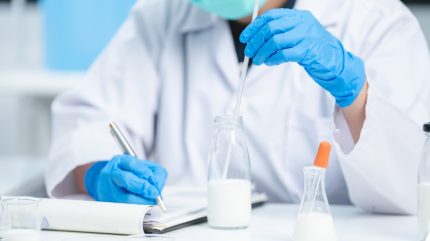
China has lifted a ban on the import of heat-treated milk and milk products from Germany enforced following a foot-and-mouth disease outbreak in January.
In a statement, Germany’s Federal Ministry of Food and Agriculture (BMEL) said that after “intensive negotiations” it had agreed with Chinese authorities on a revised veterinary certificate, allowing trade to resume.

Discover B2B Marketing That Performs
Combine business intelligence and editorial excellence to reach engaged professionals across 36 leading media platforms.
The new veterinary certificate, which follows the so-called “regionalisation principle”, permits the export from Germany to China, effective immediately, the BMEL said in the 5 March statement.
Cem Özdemir, Germany’s federal minister for food and agriculture, said: “The rapid agreement on a new veterinary certificate with China is a real breakthrough and will help many companies to gradually return to normal operations.
“With China, we have one of the largest and most important markets for our dairy products back on board. Since the FMD case appeared in Brandenburg, we in the ministry have been working flat out at all levels to keep the consequences for our economy as low as possible and to reopen the markets in third countries so that the export of animal agricultural products is possible without complications.”
The BMEL also said that it has informed federal states and trade associations of the update.

US Tariffs are shifting - will you react or anticipate?
Don’t let policy changes catch you off guard. Stay proactive with real-time data and expert analysis.
By GlobalDataAccording to Germany’s foreign trade statistics, the country exported over 296,000 tonnes of milk and dairy products to China in 2023, accounting for 24.9% of total exports to non-EU countries.
Apart from China, the UK and South Korea also banned the import of meat products from Germany, following the detection of FMD in Brandenburg, Berlin.
In response to Just Food’s inquiry about the UK’s ban on German dairy products, a spokesperson from the Department for Environment, Food and Rural Affairs (Defra) said that the restriction “is still in place”.
The UK, which is the second-largest importer of German dairy products after China, imported approximately 205,410 tonnes in 2023, according to Germany’s foreign trade statistics.
Along with associated meat and dairy products, it also prohibited commercial imports of live cattle, pigs, sheep, deer, and buffalo from Germany, until further notice.
Further restrictions applied to individual travellers, who were barred from bringing unpackaged meat, dairy, and related animal products to the UK from the EU and states within the European Free Trade Association, the Faroe Islands, and Greenland.
Commercially packaged German goods are also subject to the same rules.
Just Food has also contacted the South Korean Ministry of Agriculture for comment on its current status but has yet to receive a response.



